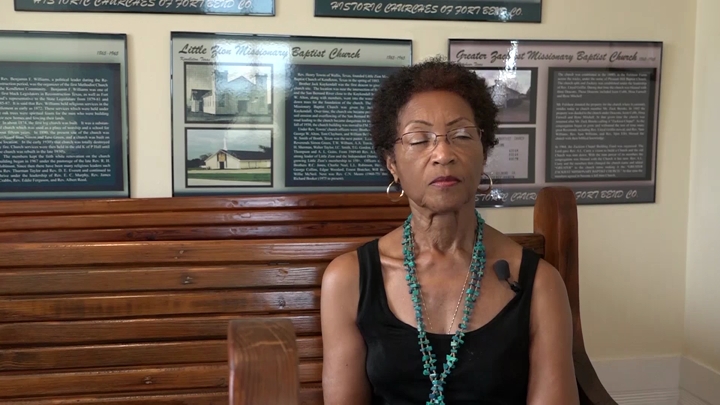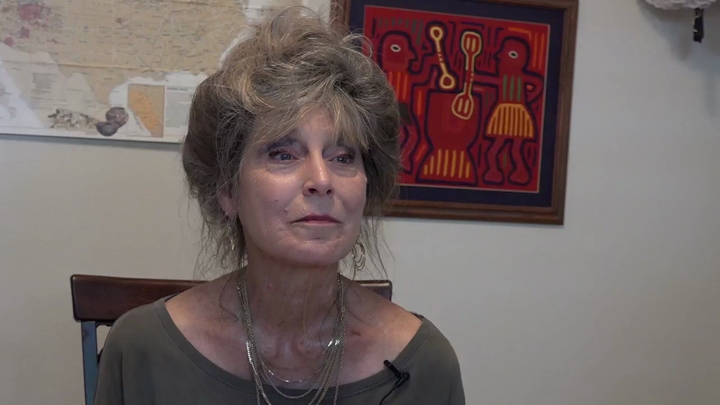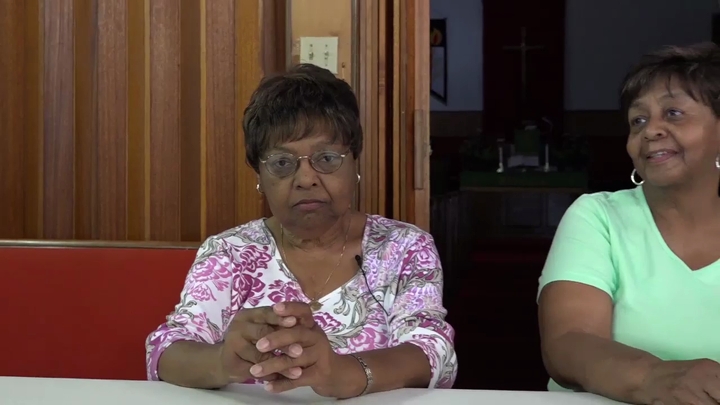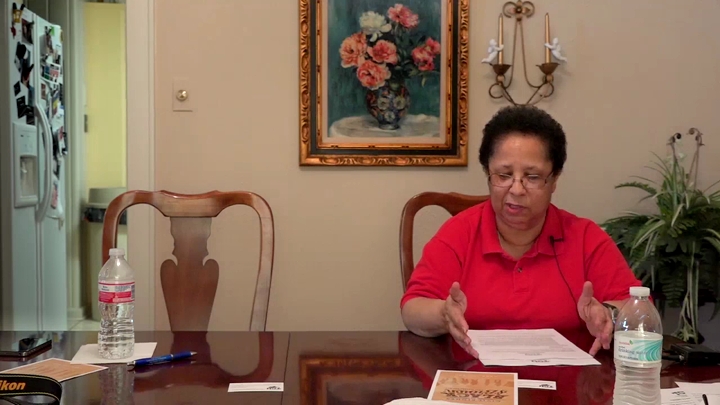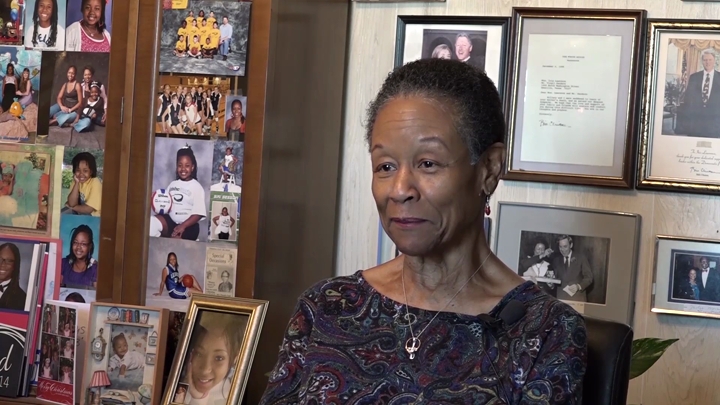Abdullah / Family History, Part One
sign up or sign in to add/edit transcript
Interviewer: Can you state your name? Helena Abdullah: Helena Joan Patton-Abdullah Interviewer: And your current or former occupation? Helena Abdullah: I am an LVN. I also have a bachelor's degree with SFA, but I don't use it. I take care of sick children. Interviewer: And place of residence, meaning town? Helena Abdullah: I am in Nacogdoches, TX. Interviewer: And today's day is June 30, 2016. Where and when were you born? Helena Abdullah: I was born here; however, I was conceived in Michigan. But I was born here in 1950 and I was born third out of nine children. So, mother and daddy, they had TV but, anyway, a lot of kids in the family. (laughs) Interviewer: And how was it like growing up in such a large family? Helena Abdullah: You learn patience for the bathroom. You learn that when daddy and mother called you for supper, you were not late. Cause I had brothers that love to eat. So, you tried to get home at the same time they did. You'd be left with the chicken neck or maybe a leg or very little else. Interviewer: What was the name of your parents? Helena Abdullah: My dad was Burghardt Mars Patton. He was named for W.E.B. Dubois, because my grandfather and my grandmother back in the day, my grandfather taught at Texas college. [phone rings and video cuts away momentarily] Interviewer: We were going over how your father got his name. Helena Abdullah: My grandparents were educators and they lived in Tyler. When other educators would come through, back in those days, there was no place for them to stay, so they would stay at my grandparents' home in Tyler. He was one of the people that stayed at my grandparents' home. My grandfather and my grandmother were so impressed by him, Mr. Dubois, that they named their child, which is my dad, after him, Burghardt. That's how he got his name. My mother was in education. She went to Bishop College and her mother was an educator, but her dad owned a garage. Her mother, I'm not so surprised with how I am, her mother was a teacher in a small community here, Sandhill. It's 10 miles out I guess. Well, she petitioned the Board of Education to get teacher salaries the same as whites because the blacks weren't making near as much as the whites, but she said we're doing the same work, we have more children in our classrooms than they do, and we need at least close to or the same wages. We don't know if they raised the salaries, but we do know they responded to her letter and they agreed that the Negroes should have the same pay raise at the whites. Interviewer: About what year do you think that happened? Helena Abdullah: I have the letter, it was in 1925 I think. Nineteen twenty-five or 1926 or earlier. Interviewer: So, seemingly your family has a long history of education and valuing education. Why do you think that was the case? Helena Abdullah: Back in the day, as soon as people were able to put ten cents together, they knew that everybody that lived on a farm would be destined to stay on the farm if they didn't get educated. That's one of the reason's, I'm sure on both sides of the fence, that everybody needed to try to get educated. My gosh, on my grandfather's side, my dad's dad, he was a Pullman porter. He met my grandmother on the train, she was coming down here to go to school. She was going to Talladega Normal School, that's what they called them for blacks back in the day. So, she was going to school there. Well, he was smitten by her. She was this little proud (sits up and crosses her hands in her lap) Her dad went to Michigan by way of the Underground Railroad at five years old. We don't know where his people came from, we don't know their real names. He was raised by Quakers. So, she was a staunch—you can't talk to me, my parents aren't present. Completely by the rules. When he tried to talk to her she told him you have to come talk to my father first. So, the next time went through Michigan and she was off on leave from school, he visited her father. Her father told him that he would talk to his daughter once he graduated from college. So, he hurried up and got his degree. He went back to Michigan, took his degree, asked for her hand in marriage and they married. They never courted. Back then you didn't do it, you didn't court. You just saw somebody that looked like somebody you wanted to be with, you got married. But he had to finish college and take my great-grandfather the certificate to show that he had graduated because he said as a Pullman porter, you're going too many places. That's transient work. He wanted something stable for his daughter. My grandmother wanted to go as a missionary to Africa and her mother told her there was a lot of missionary work that she could do right here in the United States.
| Interview | Interview with Helena Abdullah |
| Subjects | Family |
| Family › Family Histories and Traditions | |
| Family › Courtship | |
| Family › Marriage | |
| Family › Childhood Experiences | |
| Education | |
| Family › Parents | |
| Family › Siblings | |
| Tags | Texas College |
| Dubois | |
| Bishop College | |
| sign up or sign in to add/edit tags | |
| Interview date | 2016-06-30 |
| Interview source | CRBB Summer 2016 |
| Interviewees | Abdullah, Helena |
| Interviewers | Howard, Jasmin |
| Locations | Tyler, TX |
| Michigan, USA | |
| Duration | 00:06:40 |
| Citation | "Family History, Part One," from Helena Abdullah oral history interview with Jasmin Howard, June 30, 2016, Nacogdoches, TX, Civil Rights in Black and Brown Interview Database, https://crbb.tcu.edu/clips/2298/family-history-part-1, accessed February 17, 2026 |


